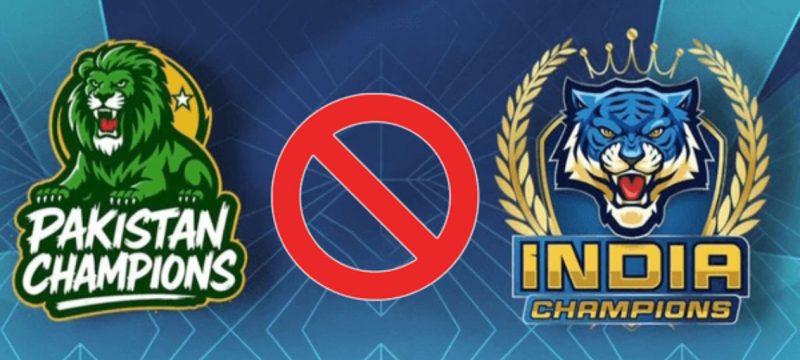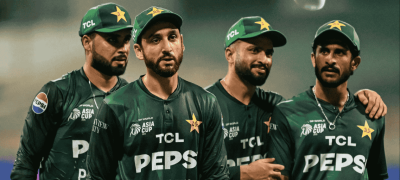In a deeply disappointing and controversial move, India has reportedly chosen to pull out of the semi-final clash against Pakistan, citing the recent Pahalgam attack as the basis for their refusal. This decision has not only shocked cricket fans across the globe but also reignited debates on how political tensions are unfairly bleeding into the sporting world — a space that is meant to be sacred, neutral, and above all, unifying.
🏏 Sports is Meant to Unite, Not Divide
At its core, sports — especially cricket in the subcontinent — is a celebration of competition, unity, and mutual respect. It is one of the very few platforms where individuals from differing nations come together to celebrate skill, endurance, and spirit. India and Pakistan share one of the most iconic cricketing rivalries in the world. Matches between the two nations are watched by millions, if not billions, with people from both sides glued to their screens, hearts racing, cheering, and uniting in the love of the game.
But India’s decision to walk away from the semi-final has tainted that spirit. The refusal to play goes against the very essence of sportsmanship, where athletes rise above external pressures and play to win — not politically posture to avoid a match.
🇮🇳 What Happened: India’s Decision Post-Pahalgam Attack
The tipping point for India’s withdrawal was reportedly the tragic Pahalgam attack in Kashmir. While the incident itself is condemnable and calls for serious diplomatic attention, using it as a justification to boycott a sports event — without presenting conclusive evidence linking Pakistan — reeks more of political maneuvering than security concern.
The global sports community and many within India itself are questioning the timing and relevance of such a decision. Notably, several Indian cricketers allegedly expressed willingness to play and prove their mettle on the field rather than walk away, but their voices were drowned by political influence and nationalistic fervor.
🇵🇰 Pakistan’s Response: Poised, Calm, and Cricket-Ready
In stark contrast, Pakistan has handled the situation with grace and readiness. Federal ministers, PCB officials, and Interior Minister Mohsin Naqvi held a high-level meeting to deliberate on India’s withdrawal and the implications it holds for the future of regional cricket. They emphasized that Pakistan remains ready and willing to play, underscoring that sports should not be held hostage by politics.
Pakistan’s consistent stance — to continue playing with dignity and respect, even under pressure — is being widely appreciated. The nation’s sports authorities have urged the international community and the ICC to take notice of this politicization of the game.
💣 The Pahalgam Attack: A Poor Excuse for Boycott?
Let’s be clear: Every act of violence deserves investigation and justice. However, India’s linking of a localized militant incident in Pahalgam with international cricket without proper evidence is being seen by many as an excuse to avoid a high-pressure match.
Analysts argue that the Indian media’s aggressive narrative, often painting Pakistan with a broad and biased brush, has led to knee-jerk decisions that do more harm than good. There is no concrete evidence yet tying Pakistan to the Pahalgam tragedy, and using such attacks to justify stepping away from cricket only fuels division.
💔 Fans Pay the Price: A Lost Moment in Sports History
The real losers in this entire scenario are the fans. Millions from both countries eagerly await India vs Pakistan matches. These aren’t just games — they’re events that bring families together, generate economic boosts, and most importantly, offer a peaceful way for two nuclear-armed neighbors to engage.
This boycott has robbed them of that experience. It has let down young Indian and Pakistani fans who look up to their sports heroes not just for runs and wickets — but for courage, determination, and grace under pressure.
⚖️ The Bigger Picture: Keep Politics Out of Cricket
The merging of political agendas into sports is not new, but it’s becoming increasingly dangerous. Cricket should not be used as a pawn in diplomatic power play. If every geopolitical issue is allowed to dictate the playing schedule, international tournaments would crumble under their own weight.
The ICC and other governing bodies need to establish clear frameworks that prevent such politicized boycotts. Otherwise, the credibility and future of global cricket will be at stake.
📝 Final Thoughts
India’s refusal to play Pakistan in the semi-final sets a troubling precedent. It undermines the true spirit of sports, disappoints millions of fans, and fuels further division in a region that desperately needs more unity, not less. While Pakistan continues to uphold the values of cricket and expresses readiness to compete, it is India’s withdrawal — not its cricket — that will be remembered for years to come.
Let cricket be about cricket. Let rivalry stay on the pitch, not in political war rooms.
In other news read more about Shahid Afridi Stands Tall Like a Lion, Watching the Indian Team Walk Away Like Cowards – Unreal Aura!









